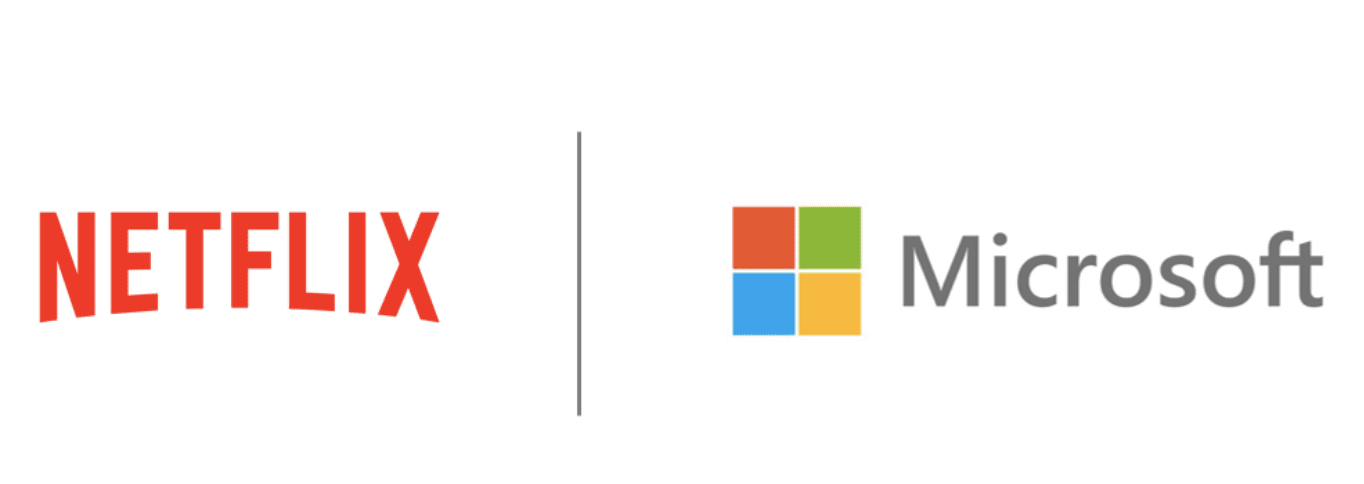Netflix continues to roll out its previously announced plan to provide an ad-supported subscription tier. The streaming company has chosen Microsoft to be its global advertising technology and sales partner. This means Microsoft will supply technology to facilitate the placement of video ads on Netflix. All ads served on Netflix will be available exclusively through Microsoft’s platforms.
In a statement, Netflix Chief Operating Officer and Chief Product Officer Greg Peters said:
In April we announced that we will introduce a new lower priced ad-supported subscription plan for consumers, in addition to our existing ads-free basic, standard and premium plans. Today we are pleased to announce that we have selected Microsoft as our global advertising technology and sales partner.
Microsoft has the proven ability to support all our advertising needs as we work together to build a new ad-supported offering. More importantly, Microsoft offered the flexibility to innovate over time on both the technology and sales side, as well as strong privacy protections for our members.
It’s very early days and we have much to work through. But our long term goal is clear. More choice for consumers and a premium, better-than-linear TV brand experience for advertisers. We’re excited to work with Microsoft as we bring this new service to life.
The news comes weeks after Microsoft completed its acquisition of the Xandr ad-tech unit from AT&T, which had been involved in programmatic advertising. Xandr provides a data-enabled technology platform with tools that help power a diverse ecosystem connecting marketers and media owners through first-party, data-led advertising solutions across its network. The Wall Street Journal reported that the acquisition gave Microsoft the technology necessary to become a contender for the Netflix deal. The Wall Street Journal also noted that in pitching itself as a contender against rivals suchas Google, Microsoft “stressed one word: agnostic. Microsoft emphasized that it won’t compete in streaming with Netflix, the person said. Comcast’s NBCUniversal operates the Peacock streaming service while Google owns YouTube.”
It was widely known that Netflix would seek an ad tech partner to support its nascent ad-supported tier. The company, facing declining membership and sagging stock price, is under pressure to compensate for lost revenue by adopting ads. Rivals such as Disney+ are set to launch an ad-supported option, too.
But Microsoft is a surprising choice as a partner. Microsoft has not, historically, been known for video ads. Having said that, going with Microsoft likely means that Netflix will launch its ad-based platform as a reservation buy when it goes into beta, but that would be short-term. Long-term, I think this means that Netflix, as well as Microsoft, is looking to open up Netflix advertising in the same way that Google does on YouTube/YouTube TV.
That would mean that after Microsoft works out the kinks through reservation buys, the company would open up placements for all advertisers, regardless of budget, to run video ads on Netflix. Reservation buys would continue for any advertiser, but anytime those placements are not bought, they would go up for auction. I foresee, though, that big series like Stranger Things, The Crown, and The Witcher will require large reservation busy since demand will be high. The same goes for movies.
Disney+ recently announced that the cheaper D+ offering would have ads as well, but those would be done through The Trade Desk. TTD is a popular DSP (demand side platform), but typically they require a reasonably sized budget in order to run campaigns.
With the Netflix/Microsoft deal, it opens up “TV commercials” for the everyday advertiser.
Contact True Interactive
True Interactive can help you navigate the connected TV landscape. Our services range from media strategy and planning to automated performance reporting. Learn more about our services here, and contact us to learn more.
